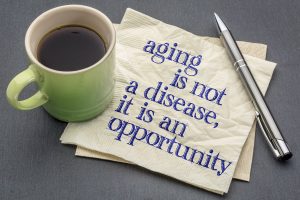 Aging isn’t easy, but we all have to do it. Contrary to the myth our culture tries to sell us, there is no escaping the march of time and the changes it brings to our bodies, minds, and lives. And these days, understanding how to age well is increasingly important since our golden years stretch out for much longer than they used to. In the last hundred years or so, the average life expectancy has increased by almost thirty years.
Aging isn’t easy, but we all have to do it. Contrary to the myth our culture tries to sell us, there is no escaping the march of time and the changes it brings to our bodies, minds, and lives. And these days, understanding how to age well is increasingly important since our golden years stretch out for much longer than they used to. In the last hundred years or so, the average life expectancy has increased by almost thirty years.
The key, as it turns out, to being happy during the latter part of life is to discover and embrace the concept of positive aging.
This can be tricky, especially in a country like the United States, where getting older is something most people either ignore or fight. But science is proving that while aging may not be a bed of roses, there are lots of things we can do to make the process more enjoyable and ensure greater happiness and better health along the way.
 What’s the secret to happiness?
What’s the secret to happiness? Connecticut Estate Planning Attorneys Blog
Connecticut Estate Planning Attorneys Blog











